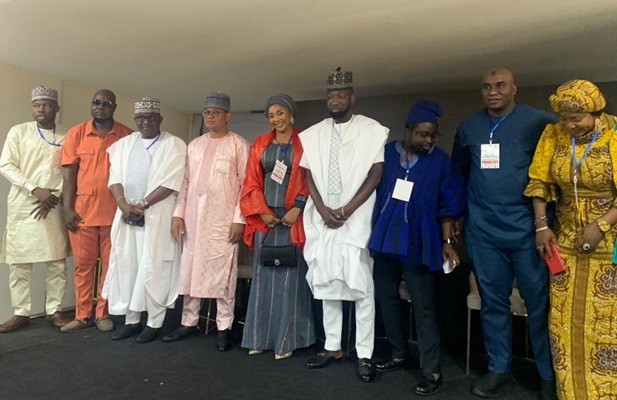CEO of Afro Arab and members present
Afro-Arab Group of Companies in collaboration with the National Mosque has organized its first youth summit to mark International Youth Day (IYD).
Themed, “The Future of Zongo Youth,” the day seeks to empower the youth within the Zongo communities to come together for a positive change.
Speaking at the event, Founder and Chairman of the Afro-Arab Group of Companies, who also serves as One Young World Ambassador & Youth Ambassador for Peace and Development, Alhaji Salamu Amadu, stated that most youth in Zongo communities face a lot of challenges such as unemployment.
Hence, he decided to organise the programme to celebrate, inspire and bring hope to the youth who are the backbone of the economy.
“Africa is the continent with the youngest population, a continent that has the world’s largest youth population, it is imperative for us to put the youth at the center of our development agenda and create avenues aimed at ensuring our growth because that is the surest way of safeguarding our future,” he stated.
He, therefore, noted that the world is fast changing and the youth especially the Zongo youth, must rise and embrace innovative ways to fit in society.
“It is significant to also acknowledge the many individuals who have risen through the seeming inequalities and stereotypes to achieve unparalleled feats in society, governance, business, sports, creative arts, and critical facets of development. We can today boast of several Zongo youths who are making strides,” he said.
He, therefore, called on the government and relevant stakeholders to effectively implement the National Youth Policy and enact other legislations that will serve as bedrock for the various Zango jurisdictions.
Charge d’affaires at the United Arab Emirates Embassy in Ghana, H. E. Amer Ali Alalawi, said, “it is critical that we educate our youth with the correct values, because the youth can make a better and brighter future for our world and all civilization.”
By Nafisatu Abdul Razak


